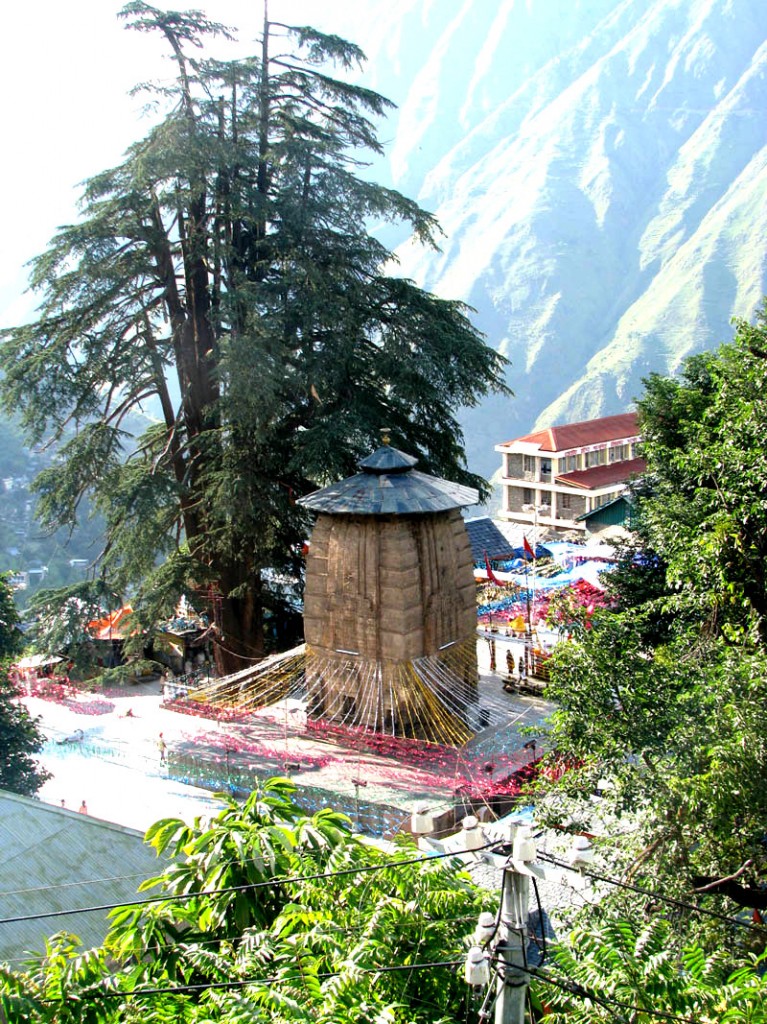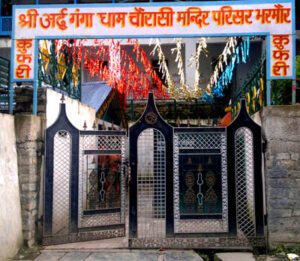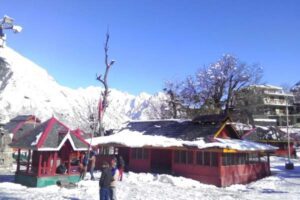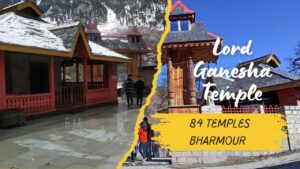Deodar is is looked upon as sacred and also called as the God-wood if it grows near the Shiva temple. Chaurasi temple complex is partly shaded by huge Cedrus tree, which is called deodar in Hindi. This deodar-the god wood is visible from great distance away. It grows near the Manimahesh Shiva temple at Chaurasi (84) temple complex. It is regarded as sacred and no branch of it may be cut down. 
The name, Deodar, goes all the way back to the Indo-Aryan language of Sanksrit where the word devadaru comes from combining deva (god) and daru (wood).
There are many stories associated with association of deodar and Lord Shiva. It is believed that this tree is dear to Shiva because he planted his linga on earth in the vicinity of deodar forest on first instance. Another reference in that Hindu mythology mentions that the formidable Lord Shiva was meditating under a deodar tree, when Kamadeva, the god of love disturbed him. Angered, Shiva opened his third eye and burnt Kamadeva to cinders. Through this legend, the deodar has remained closely connected with the worship of Shiva in Himalayas. Often a tree is built near or around a special tree which is regarded as his embodiment. The Linga Purana also mentions the visit of Shiva in Bhikshatana form to Deodar Forest to entice the wives of sages, who had taken up habits detrimental to the perpetuation of a healthy social order If a Cedrus tree is found in the close proximity of the Devi temple then it is called devidaar. There are many instances of huge cedrus trees growing near Shiva and Devi temple. The temple of Manimahesh Shiva is located near Deodar at centre of Chaurasi temple.


